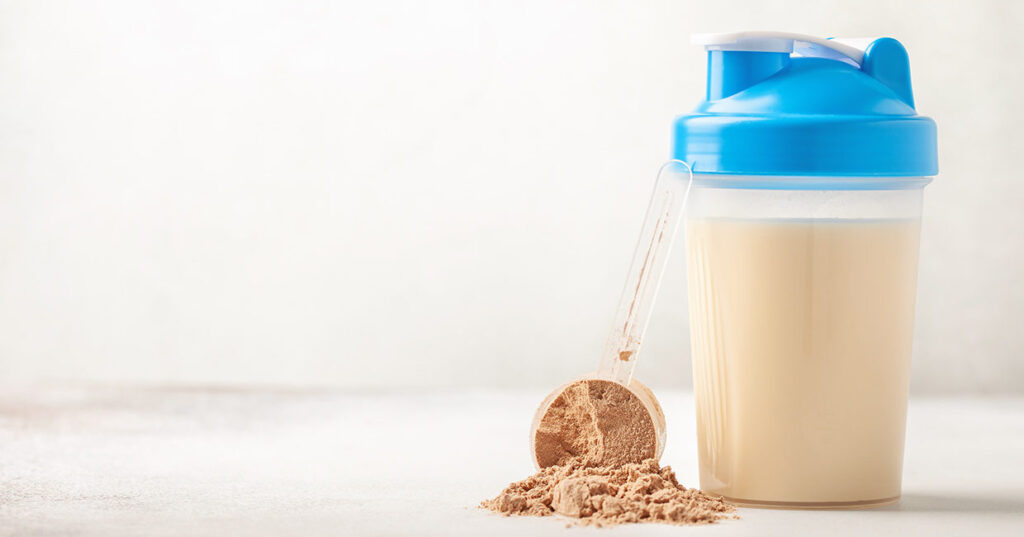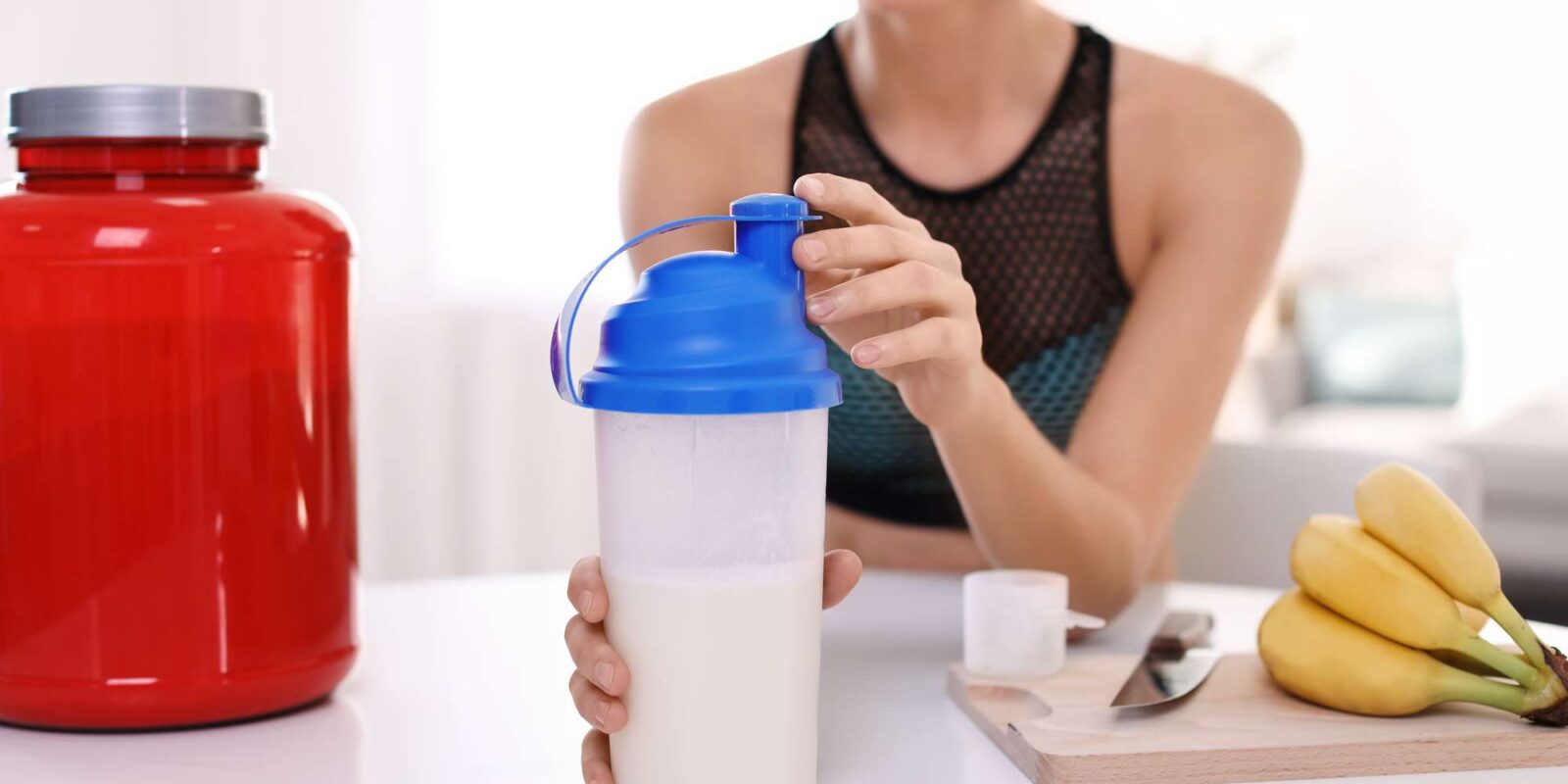Introduction
How much water should I take with whey protein-In the realm of fitness and nutrition, the synergy between proper hydration and effective supplementation cannot be overstated. One such crucial pairing is that of water and whey protein. Both play distinct yet interconnected roles in supporting muscle growth, recovery, and overall well-being. Achieving the ideal balance between these two elements is essential for maximizing the benefits of your protein supplementation. As you embark on your fitness journey, you’re likely to encounter questions like “How much water per scoop of protein?” and “How much water for protein powder?” In this article, we’ll delve into the science behind water-to-protein ratios and provide practical guidelines to help you achieve the perfect hydration for your whey protein consumption.

Understanding Whey Protein and Hydration:
The Role of Whey Protein
Whey protein, derived from milk during the cheese-making process, is a complete protein containing all essential amino acids. It’s renowned for its ability to aid muscle recovery and growth, making it a staple for fitness enthusiasts and athletes alike. When consumed post-workout, whey protein delivers a quick influx of amino acids to muscles, supporting tissue repair and synthesis.
The Importance of Water
Water is the elixir of life, and its significance goes beyond quenching your thirst. Proper hydration is critical for digestion, nutrient absorption, and temperature regulation. It’s no surprise that staying hydrated is paramount, especially during workouts when you’re sweating and expending energy. Dehydration can lead to decreased exercise performance, reduced muscle function, and even impaired cognitive abilities.
Hydration and Fitness Activities
Engaging in physical activities increases your body’s demand for water. The more you sweat, the more fluids you need to replenish. Hydrating before, during, and after workouts is crucial for maintaining performance and preventing dehydration. Integrating proper hydration practices with your whey protein consumption can contribute significantly to achieving your fitness goals.
Science of Protein Powder and Water Proportion:
Achieving Smooth Consistency
The perfect whey protein shake is not only about its nutritional content but also its texture and taste. Mixing protein powder with water creates a suspension that must be smooth, lump-free, and easily drinkable. Achieving this consistency is both an art and a science, hinging on the balance between protein and water.
The Water-Protein Balance
The science of the water-to-protein ratio lies in creating an environment where protein molecules are evenly dispersed within the liquid. Too little water can lead to a thick, chalky mixture, while excessive water can result in a thin, unappetizing shake. The goal is to find the sweet spot that ensures optimal solubility and a pleasant mouthfeel.
Determining the Optimal Ratio
The optimal water-to-protein ratio varies depending on factors like the type of whey protein you’re using, your fitness goals, and personal preferences. While there’s no one-size-fits-all answer, a general guideline is to start with approximately 6-8 ounces (180-240 ml) of water per scoop of protein. However, this ratio can be adjusted based on your desired consistency and taste preferences.
Determining Your Ideal Water Amount:
Whey Protein Type and Hydration Needs
Different types of whey protein, such as classic whey protein, whey protein isolate, fit pro whey protein, and universal whey protein, have varying nutritional compositions. Whey protein isolate, for instance, tends to have lower fat and carbohydrate content, which might influence your hydration needs. It’s essential to factor in these differences when determining your water intake alongside your chosen protein type.
Fitness Goals and Hydration
Your fitness objectives also play a role in how much water you should consume with your whey protein. Endurance training, for instance, leads to increased fluid loss through sweat, necessitating higher hydration levels. On the other hand, those focusing on strength training might not require as much water during their workouts.
Adjusting Water Intake for Scoops
As you adapt your whey protein consumption to your protein goals, you might find yourself using more than one scoop. In this case, it’s crucial to adjust your water intake proportionally. If you’re using two scoops of protein, you’ll likely need around 12-16 ounces (360-480 ml) of water. Remember, these are general guidelines and personal preferences should always be taken into account.
Hydration Strategies for Whey Protein:
Dispelling Hydration Myths
There are misconceptions surrounding the timing of hydration in relation to whey protein consumption. Some believe that drinking water immediately after protein intake dilutes the digestive enzymes and hinders nutrient absorption. However, this isn’t entirely accurate. Proper hydration enhances digestion and aids nutrient absorption, so there’s no need to delay drinking water after consuming your protein shake.
Pre-During, and Post-Workout Hydration
To stay properly hydrated throughout your workout, it’s advisable to start drinking water even before you hit the gym. Sip water during your session to replace fluids lost through sweat. After your workout, rehydrate with a combination of water and a protein shake to replenish both fluids and nutrients.
Creating Optimal Protein Shakes
Crafting the perfect protein shake goes beyond protein and water ratios. To enhance the taste and nutritional value of your shake, consider adding ingredients like fresh fruits, nut butter, or even a handful of leafy greens. These additions not only contribute to hydration but also provide essential vitamins, minerals, and antioxidants.
Optimal Hydration Anchored to Protein Effectiveness:
The Absorption Advantage
Proper hydration is pivotal for the absorption of nutrients, including amino acids from protein. Water aids the breakdown of protein molecules into smaller peptides, facilitating their assimilation into the bloodstream. Without adequate hydration, the benefits of whey protein consumption might not be fully realized.
Synergy for Muscle Growth
The relationship between water and protein is synergistic, especially when it comes to muscle growth and recovery. Adequate protein intake provides the building blocks for muscle repair, while water ensures these nutrients are efficiently transported to muscle cells. This synergy is key to achieving the results you desire from your fitness efforts.
Risks of Inadequate Hydration
Insufficient hydration not only impairs protein absorption but also jeopardizes overall health. Dehydration can lead to fatigue, decreased exercise performance, and even kidney strain. If you’re consistently dehydrated, the positive impact of your protein supplementation might be compromised.
Precision Hydration for Fitness Goals:
Tailoring Hydration to Objectives
Your hydration needs will evolve based on your fitness goals. For endurance training, you’ll need to focus on sustained hydration to support prolonged activity. Conversely, strength training might demand more immediate hydration replenishment due to shorter, intense bursts of exercise.
The Synthesis Connection
Hydration isn’t just about quenching your thirst—it directly influences protein synthesis. This process involves the creation of new proteins in the body, which is crucial for muscle repair and growth. Proper hydration ensures an optimal environment for protein synthesis to take place, ultimately contributing to your fitness achievements.
Achieving Milestones through Hydration
Whether your goal is to build muscle, shed pounds, or enhance overall fitness, hydration is a fundamental aspect of your journey. Monitoring your water intake alongside your protein consumption allows you to fine-tune your regimen and progress steadily toward your desired outcomes.
Balancing Hydration with Whey Protein Scoops:
Calculating Water for Different Quantities
If you’re using multiple scoops of whey protein, determining the appropriate water volume might seem daunting. To simplify, follow the principle of proportionality. If one scoop requires 6-8 ounces of water, two scoops will require twice that amount, and so on.
Protein Powder to Water Ratio Guideline
For a single scoop of protein, a starting point of 6-8 ounces (180-240 ml) of water is recommended. For two scoops, double the water to 12-16 ounces (360-480 ml). As you increase the number of scoops, maintain this ratio. However, remember that preferences for consistency vary, so feel free to adjust the water amount to suit your taste
Mixing Techniques
To avoid clumps and ensure a smooth mixture, gradually add water to your protein powder while stirring or shaking. This prevents the formation of dry pockets that can result from pouring too much water all at once. Patiently adding water and mixing continuously will yield the desired creamy consistency.
How to Find Your Ideal Whey Protein Ratio for the Best Results
Finding the ideal water-to-whey protein ratio is a pivotal aspect of optimizing your fitness journey and achieving the best results from your protein supplementation. The right balance ensures not only proper hydration but also an enjoyable and effective protein shake experience. Here’s a comprehensive guide to help you discover your perfect whey protein ratio:
Understand Your Fitness Goals
Before determining your whey protein ratio, consider your fitness objectives. Are you aiming to build muscle, lose weight, or enhance your overall athletic performance? Your goals can influence how you approach your protein supplementation, including the amount of water you should consume.
Start with the General Guideline
As a starting point, follow the general guideline of 6-8 ounces (180-240 ml) of water per scoop of protein. This ratio is a balanced starting point that works for many individuals. Begin with this ratio and adjust it based on your preferences and needs.
Consider Protein Powder Type
The type of whey protein you’re using can impact your hydration needs. Whey protein isolate, for instance, has a higher protein concentration and lower fat and carbohydrate content. Consequently, it might require slightly less water than other types of whey protein. Take into account the nutritional composition of your protein powder when determining your water intake.
Taste and Texture Preferences
The consistency and taste of your protein shake are important factors in its overall enjoyability. Some people prefer thicker shakes, while others like a more diluted mixture. Gradually adjust your water-to-protein ratio to achieve the texture that suits your taste. If you find that your shake is too thick, add a bit more water; if it’s too thin, use less water.
Experimentation is Key
Finding your ideal whey protein ratio often involves a bit of experimentation. It’s perfectly normal to start with the general guideline and then make gradual adjustments based on your personal preferences. Be open to trying different ratios until you find the one that works best for you.
Consider Post-Workout Timing
When consuming whey protein post-workout, your body’s demand for fluids increases due to sweating and exertion. It’s a good practice to increase your water intake around your workout window to support proper rehydration. Consider sipping water during your workout and incorporating water-rich foods like fruits to enhance hydration.
Account for Multi-Scoop Servings
If you’re using multiple scoops of whey protein, maintain proportionality in your water intake. For instance, if one scoop requires 6-8 ounces of water, two scoops would need around 12-16 ounces (360-480 ml). Consistency is key to ensuring that your protein shake remains balanced and enjoyable.
Pay Attention to Your Body
Your body’s feedback is invaluable in fine-tuning your whey protein ratio. Monitor how you feel after consuming your protein shake. Are you adequately hydrated? Do you experience any digestive discomfort? Adjust your water intake based on how your body responds.
Hydrate Throughout the Day
Proper hydration isn’t just about what you consume alongside your protein shake. Ensure that you’re drinking enough water throughout the day to support overall hydration levels. Staying hydrated consistently is key to maximizing the benefits of your protein supplementation.
Customize Based on Activity Level
Your activity level can impact your hydration needs. If you’re engaging in intense workouts, your fluid loss through sweat increases. Adjust your water intake accordingly, with the understanding that your body’s demand for hydration can fluctuate.
Listen to Your Taste Buds
Ultimately, your taste buds are the best judges of your whey protein ratio. If you find that you’re consistently enjoying your protein shake and it’s meeting your nutritional needs, you’re likely on the right track. Feel free to make minor adjustments as your preferences evolve.
Document Your Journey
Consider keeping a journal or notes on your experiences as you experiment with different whey protein ratios. Documenting the ratios you’ve tried, how they tasted, and how they made you feel can provide valuable insights as you refine your approach.
Consult a Professional
If you’re uncertain about finding the right whey protein ratio for your goals, consider consulting a registered dietitian, nutritionist, or fitness expert. They can provide personalized guidance based on your individual needs and help you create a balanced nutrition plan.
Customizing Whey Protein Mix for Smoothness:
The Art of Smooth Mixing
The secret to a delightful protein shake lies in its texture. Gradually add water to the protein powder, allowing it to absorb and form a homogeneous mixture. A common mistake is to dump the powder into a large amount of water, leading to clumps and an uneven blend.
Elevating Flavor and Nutrition
While water is essential for hydration, it doesn’t have to be the only liquid you use. Consider incorporating almond milk, coconut water, or even simple fruit juices into your protein shakes. These additions contribute not only to hydration but also to flavor variety and nutritional content
Experimentation for Perfection
The journey to finding your ideal water-to-protein ratio is a personal one. Experiment with different quantities to discover the consistency and taste that resonate with you. Keep in mind that preferences may change over time, so don’t hesitate to tweak your approach as needed.
Ensuring Hydration for Maximum Benefits:
The Pitfalls of Dehydration
Neglecting hydration can lead to a host of issues, even when supplementing with protein. Dehydration hampers nutrient absorption, causing your body to miss out on the full spectrum of benefits that whey protein can offer. To optimize your investment in protein supplements, prioritize hydration.
Guarding Against Overhydration
While hydration is vital, overhydration can have its downsides too. Drinking excessive amounts of water in a short span can dilute electrolyte levels, leading to an imbalance. Strike a balance between hydrating adequately and maintaining electrolyte equilibrium.
Hydration Harmony
Mastering the art of hydration with whey protein requires harmony. Listen to your body’s cues and adjust your water intake based on your needs, activity level, and protein goals. By being attuned to your body, you’ll be able to fine-tune your regimen for optimal results.
Conclusion:
In the world of fitness and nutrition, the impact whey protein nutrition facts and the relationship between water and whey protein is both intricate and transformative. The path to achieving your fitness milestones is paved with precise hydration strategies. As you’ve learned, the water-to-protein ratio is far from arbitrary—it’s a dynamic factor that can impact your muscle growth, recovery, and overall well-being. By understanding the role of water in enhancing nutrient absorption, tailoring hydration to your fitness objectives, and customizing your protein shakes for optimal taste and consistency, you’re equipped to make informed decisions. Remember, the journey to finding your ideal water amount is a personalized one, guided by your goals and preferences. So, whether you’re blending classic whey protein, about time whey protein isolate, fit pro whey protein, or universal whey protein, let your hydration wisdom complement your protein prowess for a well-rounded and successful fitness journey.
Frequently Asked Question
Q1: How much water should I take with whey protein?
The optimal water-to-whey protein ratio can vary based on factors like the type of protein, your fitness goals, and personal preferences. However, a general guideline is to start with about 6-8 ounces (180-240 ml) of water per scoop of protein. Adjust the ratio as needed to achieve your desired consistency and taste.
Q2: Can I adjust the water-to-protein ratio based on the number of scoops I use?
Absolutely. If you’re using multiple scoops of whey protein, maintain the proportionality. For example, if one scoop requires 6-8 ounces of water, two scoops would require around 12-16 ounces (360-480 ml). Keep this ratio consistent while adding more scoops.
Q3: Will the type of whey protein I use affect how much water I need?
Yes, the type of whey protein you choose, such as classic whey protein or whey protein isolate, can influence your hydration needs. Whey protein isolate, for instance, might require slightly less water due to its lower fat and carbohydrate content. Adjust your water intake based on the nutritional composition of your chosen protein.
Q4: Can I use different liquids besides water for mixing whey protein?
Absolutely. While water is essential for hydration, you can enhance your protein shake’s flavor and nutritional value by using liquids like almond milk, coconut water, or fruit juices. Just remember to account for the additional calories and nutrients these liquids contribute.
Q5: What happens if I don’t drink enough water with my whey protein?
Inadequate water intake alongside whey protein consumption can hinder proper digestion and nutrient absorption. Water plays a vital role in breaking down protein molecules into smaller peptides for absorption. Dehydration can potentially compromise the effectiveness of your protein supplementation.







Leave a Reply